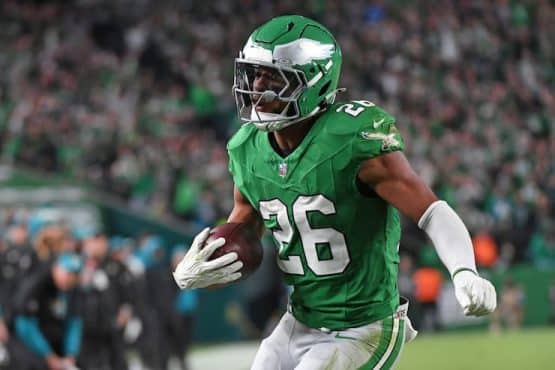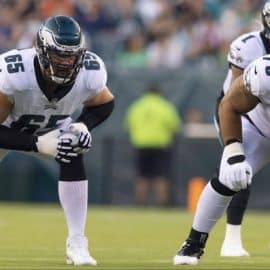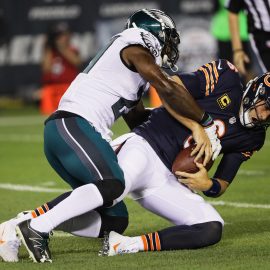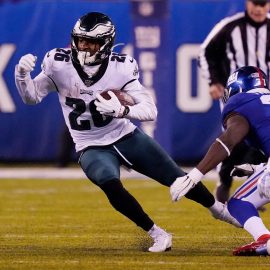You can be one of the most talented and physically gifted athletes on the planet, whether in football or basketball, and still cause a close game to be lost because you didn’t use your brain.
This is especially true in the “clock” sports with time running out.
Physical mistakes are inevitable, but mental mistakes are avoidable,
For those who may not have seen it this past weekend, the Philadelphia 76ers seemingly had a must-win game under control with about 20 seconds left in the game.
With 20.8 seconds remaining in overtime, the Sixers had a 98-97 lead and the ball in Joel Embiid’s hands. Al Horford defended him well, forcing a fadeaway jumper out near the free-throw line. The shot missed, but Ben Simmons was able to reach for the rebound from the weakside with 18 seconds to go — meaning the shot clock was off and the Sixers were ahead.
Rather than pulling the ball out and forcing Boston to foul, Simmons went right back up with a four-foot floater. It rimmed off, and Marcus Morris grabbed the rebound, ending the Sixers’ chance to milk the clock.
All Simmons had to do was gather the rebound and retreat back out to half-court land…in effect turning off the shot clock to the point where he could just hold the ball if he wanted to and either take a foul from the Celtics or simply let time expire on the game clock.
Instead, possession of the ball was in the Celtics’ hands, leading to the eventual 101-98 loss by the 76ers which pretty much eliminates them from the playoffs, down 3-0, barring a miracle 4-win sweep of the remainder of the series.
The football lesson to be learned here is to keep your down-and-distance-and game-score clock on at all times, but especially near the end of a close game.
The Eagles have been pretty good about clock issues in the past, with notable exceptions, such as a few years ago when Ryan Mathews ran out of bounds to stop the clock in a game where the Eagles needed that clock to keep running. The memory of DE Juqua Parker jumping offsides on a 4th-and-5 situation several years ago still must haunt him—it cost the Birds the game.
We’ve seen Eagles players who really got it right, though, in situations where you’re up by a point with 35 seconds to go, no timeouts left for the opponent, and there you are streaking free for the end zone. The clock-smart play is to go down inbounds right before you get to the goal-line. If you score, the clock stops. So now you’d be up by 7 or 8, but you left your opponent almost 30 seconds to come back with a Hail Mary drive.
I seem to remember Brian Westbrook and Brent Celek making such smart clock decisions in close games. I’m sure there have been others.
But since the Eagles are about to run their rookie minicamp (starting May 11), my hope is that they take an hour or two in the classroom to reinforce the lesson of strategic clock management. Too bad the 76ers didn’t have that classroom session for Ben Simmons.
* * * * * * * * * * * * *
To be fair to Simmons, he stood up to the media like a man as he was grilled post-game:
“I think it was just a natural instinct,” Simmons said. “Right next to the rim, that’s a shot I take every practice, every day. And I missed it. That’s the (way the game goes).”
What, he was asked, if he had been fouled? He tends to struggle from the line, hitting 66.7 percent on free throws in the postseason after making 56 percent in the regular season.
“I would’ve been confident,” he said.
Teammate JJ Redick called Simmons’ decision “a judgment call. It was right on the cusp.”
Sixers coach Brett Brown admitted that “if we had it again, we’d probably take it out, have him chase you, chew up some clock.
Add The Sports Daily to your Google News Feed!







